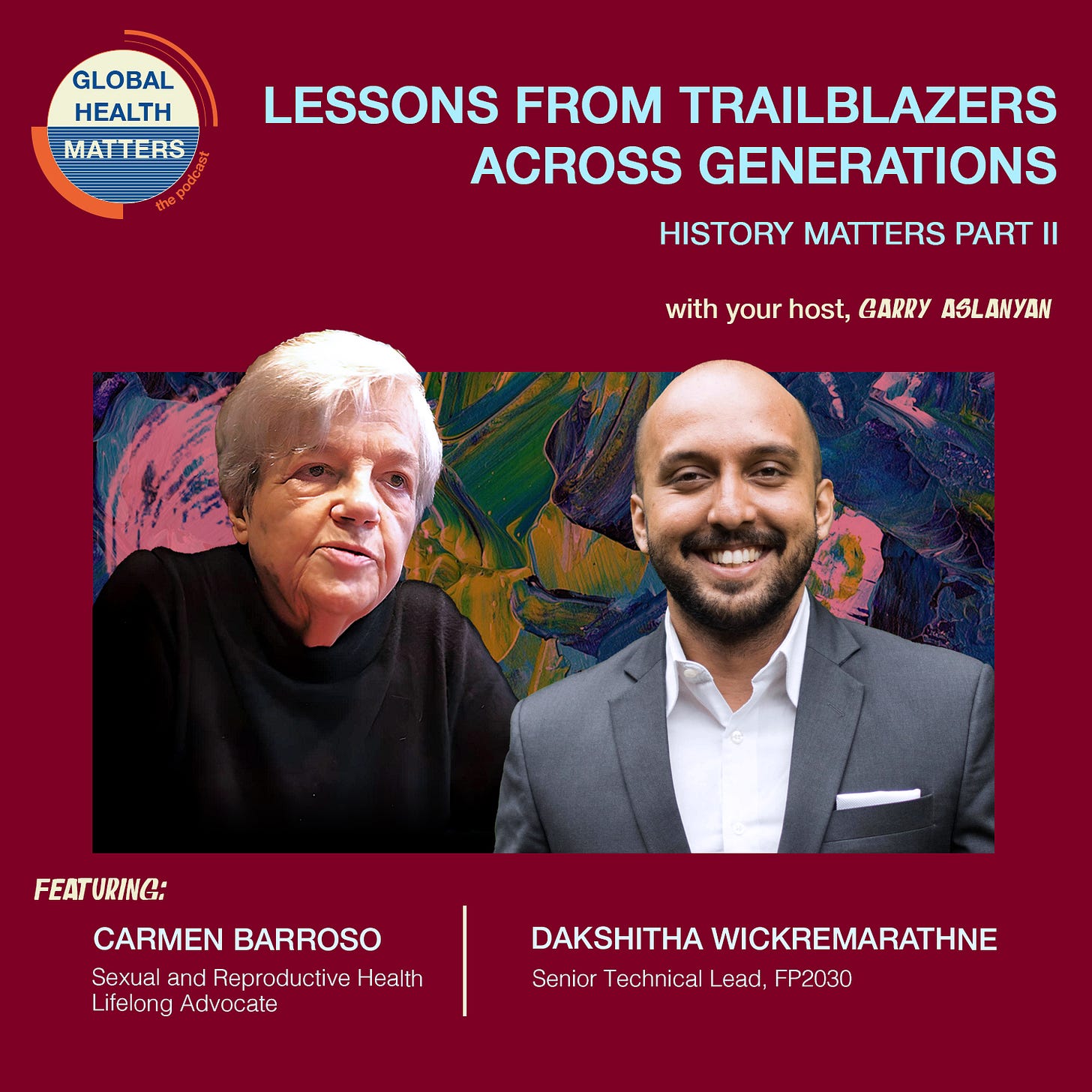Embedded: Examining Management Consultants in Global Health [GUEST ESSAY]
Newsletter Edition #206 [Curated Primer]
Hi,
In this edition we bring you a guest essay on the ubiquity of management consultants in international development. The practice of relying on management consultancies is rampant in global health, embraced not only at Geneva institutions but also at various levels of governments at national and even sub-national levels.
It is an area that is opaque, although it is beginning to get some attention from scholars and the media. We intend to report on these issues. Get in touch with us to help us probe this phenomenon that is now considered de facto in global health.
We hope you enjoy reading this piece from scholars Tine Hanrieder and Julian Eckl who have closely looked at the issue in their work.
If you find our work valuable, become a paying subscriber. Tracking global health policy-making in Geneva is tough and expensive. Help us in raising important questions, and in keeping an ear to the ground. Readers paying for our work helps us meet our costs.
Our gratitude to our subscribers who help us keep the lights on!
Check out our story from earlier this week: WHO Seeks to Raise US$7 Billion in First Ever Investment Round in 2024, Executive Board to Consider Proposal This Month.
Until later.
Best,
Priti
Feel free to write to us: patnaik.reporting@gmail.com or genevahealthfiles@protonmail.com; Follow us on Twitter: @filesgeneva
I. GUEST ESSAY
Embedded: Examining Management Consultants in Global Health.
By Tine Hanrieder and Julian Eckl
Reposted from LSE Impact Blog
Consultants have been described as wizards – superior analytical minds who can turn around businesses – but also as pretenders who sell management fads and quasi-academic insights to businesses and governments. In our recent research on the World Health Organization (WHO), one of our interviewees also described them as ‘priests’ – companies that are hired to transform the organization on the basis of the ‘bible’ (organizational strategy). Yet, this neutral, detached image as a technical servant to a public organization, is misleading. Rather, as we describe in our study of consulting firm engagement at WHO, consultants act as discretionary curators of reform inputs. They filter the knowledge and voices that go into reform proposals, and they are often closely entangled with the interests of certain stakeholders and funders.

Curating
What do curators do? In the arts, curators assemble objects, performances, or voices into a final exhibit. In business and politics, consulting firms do something similar. When they come to help change WHO – or other international bodies such as the World Trade Organization or the Munich Security Conference – they collect information, interview staff and other stakeholders, and reach for ‘case studies’ of so-called best practices as models for reform. The precise task and scope of work differs from contract to contract, but at least at WHO, many rounds of interviewing and consulting have been reported since the turn of the millennium.
Curating can create conflict when consultants are not perceived as neutral. For example, in a reform of the WHO-hosted public private partnership Roll Back Malaria, malaria endemic countries and their allies were side-lined in a Gates Foundation-sponsored consulting mission by McKinsey & Co. The consultants interviewed all kinds of stakeholders, but not malaria endemic countries and barely WHO staff, and the best practices they used to design a reform came from the business world, firms such as Uber and Alibaba instead of public institutions. Their reform proposal became the blueprint for a 2015 revamp of the partnership that, among other innovations, abolished the constituency-based representation of stakeholders, such as affected countries or NGOs.
No logo, no transparency
While such processes are controversial, they are also opaque. At WHO, an already underfunded organization, a lot of consulting firm services to WHO are gifted by donors and as a consequence are less thoroughly scrutinised. And, since they count as ‘procurement’ instead of formal civil society collaboration, usual conflict of interest regulations do not apply. Funders may co-write the terms of reference, but this is also done informally. Technically, the WHO as the formal client buys the consultants’ input and owns the results, so that to outsiders, it is not clearly discernible what inputs the consultants generated, and through which methodology. Interviewees told us about sitting in organizational meetings and seeing those iconic PowerPoint slides that could only be from a consulting firm, but there was no logo. Reports generated in the consulting processes, when they are made available at all, also tend to remain vague regarding authorship. The reform task force for Roll Back Malaria had McKinsey consultants as key members, but their names were not listed as part of the team.
There is thus an accountability deficit in the way consultants operate. Consultants’ personal ties to parties in an organizational controversy might even be plain and criticized (like in the Roll Back Malaria reform), but there is no mechanism to address this. And unless a country holding the external auditor role at WHO decides to investigate consulting arrangements, very little data on these arrangements is publicly available. Where an auditor, provided by India, did look into consulting firm activities during Covid-19, they found irregularities in the way in which the consulting contract was awarded. Furthermore, while the consulting firm described its service as ‘pro bono’ work, it still cost the organization millions of dollars.
Lots of money, little money
The Gates Foundation, one of the main sponsors of consulting firm services to WHO, has meanwhile decided to insource some management strategy capacity. The foundation runs, so to say, its own internal McKinsey. The reasoning is that even if you hire external strategy consultants, you need to be well resourced enough to know what kind of service you may need, and will get, from consultants. Fund-strapped organizations like WHO that need to survive on earmarked, project-specific funds, do not have that option. Consultants may come in to help them sell WHO’s value for money to donors, or signal accounting rigour to keep some income flowing. But, even if branded as donated knowledge, there is a lack of control and no way overlooking that these are expensive services bought to sustain a regime of deliberate austerity for global public health.
About the authors:
Tine Hanrieder is Assistant Professor in Health and International Development at the Department of International Development, London School of Economics. Her main research themes are global health politics, labour, and migration.
Julian Eckl is a post-doctoral research fellow at the University of St. Gallen. He works mainly in the fields of global health governance and financing, political ethnography, and the social reproduction of different forms of societal order. Recently, he contributed research on differential treatment of developing countries in global health to a forthcoming book.
II. PODCAST CORNER
Lessons from trailblazers across generations
In the second of the history matters episodes suggested by listeners, the two guests in this episode reflect on their personal experiences and engage in an intergenerational discussion on the evolution of sexual and reproductive health.
Host Garry Aslanyan’s guests are Carmen Barroso, a lifetime advocate, researcher and implementer for sexual and reproductive health, and Dakshitha Wickremarathne, senior technical lead overseeing the implementation of FP2030’s Asia Pacific Hub. The discussion highlights how history supports future leaders through intergenerational learning and charts a hopeful path for the evolution of key global health challenges.
Garry Aslanyan is the host and executive producer of the Global Health Matters podcast. You can contact him at: aslanyang@who.int
[This is a sponsored advertisement: Get in touch with us if you want to promote books, webinars, job postings. Write to patnaik.reporting@gmail.com.]
III. WHAT WE ARE KEEPING AN EYE ON
World Economic Forum: Davos 2024: January 15-19
WHO 154th Executive Board Meeting: January 22-27
IV. WHAT WE ARE READING
Gavi Board appoints Senator Dr Sania Nishtar as Chief Executive Officer
From Decision to Action: The Africa Epidemics Fund: Centre for Global Development
Bangladesh: What happens when a development darling falls from grace? Devex
Expired Pfizer Covid antiviral drugs set to cost Europe $2.2bn, data shows: Financial Times
V. OBITUARY
SUSAN K SELL, DISTINGUISHED IP SCHOLAR
In Memoriam: Susan K. Sell, Professor Emerita of Political Science and International Affairs
(We spoke with Professor Sell in 2022 in Geneva on the TRIPS Waiver discussions at the WTO)
Did a colleague forward this edition to you? Sign up to receive our newsletters & support Geneva Health Files!
Global health is everybody’s business. Help us probe the dynamics where science and politics interface with interests. Support investigative global health journalism.




